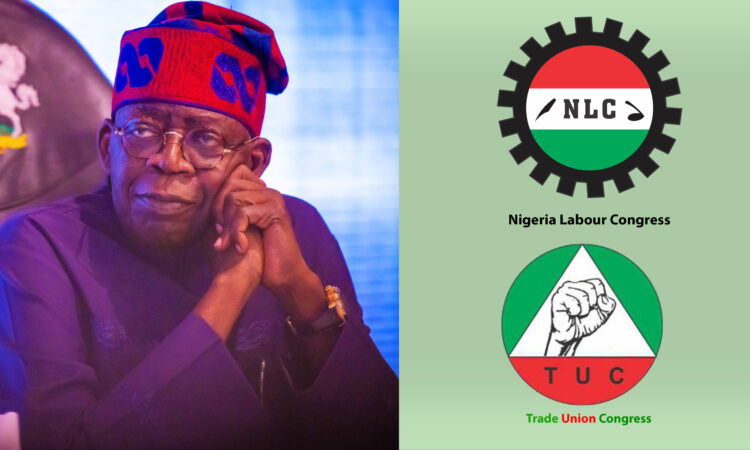Labour’s long wait will continue as FEC fails to act on the new minimum wage proposal.
NewsOnline Nigeria reports that the desire by Nigerian workers for a new national minimum wage to enable them to cope with the present cost of living crisis is set to be delayed after the federal government announced that President Bola Tinubu will engage in further consultations before deciding on the matter.
This Nigeria news platform reported that the Information Minister, Mohammed Idris, disclosed this to State House correspondents yesterday after President Tinubu presided over the Federal Executive Council (FEC) meeting at the Presidential Villa, Abuja.
Idris revealed that while a report from the tripartite committee set up to resolve the issue had been submitted to the president, the complexity of the issue necessitates further discussions.
ALSO: Sokoto Government Aims To Reduce Sultan’s Powers With New Bill
The minister explained that the Federal Executive Committee had deliberated on the matter but ultimately decided to step down an immediate decision.
This move is aimed at ensuring that all stakeholders, including state governments and private sector representatives, have an opportunity to provide input.
He reiterated that the national minimum wage affects all levels of government and the private sector, making it crucial to consider various perspectives before moving forward.
He said, “That memo was stepped down to enable Mr President to consult further, especially with the state governors and the organised private sector, before he makes a presentation to the National Assembly before an executive bill is presented to the National Assembly.
“So I want to state that on the new national minimum wage, Mr. President is going to consult further so that he can have an informed position because the new national minimum wage, like I said, is not just an issue of the federal government: it affects the state governments, the local governments, and the organised private sector, and that is why it is called national minimum wage. It’s not just an affair of the federal government.”
NewsOnline Nigeria recalls that Labour had on June 3, 2024, embarked on a two-day strike over the failure of the tripartite committee to agree on a new minimum wage, and for a reversal of the electricity tariff hike.
However, whenever a new minimum wage is agreed upon, the implementation will take effect from May 2024.
New Minimum Wage Will Be Ready In August – TUC
Meanwhile, NewsOnline Nigeria reports that organised labour yesterday hinted that the new national minimum wage is expected to be finalised by early August 2024.
The president of the Trade Union Congress of Nigeria (TUC), Comrade Festus Osifo, gave the hint when the labour centre received officials from the Kogi State government led by the special adviser on labour matters to the state governor, Usman Ododo, Comrade Onuh Edoka, in Abuja.
The TUC president called for urgency in updating the minimum wage to address Nigerian workers’ economic challenges, particularly in light of rising economic challenges.
Osifo said that the TUC, along with the Nigeria Labour Congress (NLC), was working diligently to ensure that the new minimum wage bill progresses swiftly through the National Assembly and receives presidential assent by the end of July or early August.
The labour leader called on state governments to prepare for the new wage implementation, citing Nasarawa State’s proactive steps in setting aside funds to meet future obligations.
Osifo expressed the readiness of TUC to monitor state-by-state implementation once the new wage act is passed.
He urged Kogi State and others to prioritise the new minimum wage amidst revenue challenges.
He said, “What we are working on, from both labour centres, is that before the end of July, we should have a new minimum wage that must have passed through the processes and been assented to by the president so that the plight of the workers will improve much more.
“We know that, by the grace of God, the new minimum wage act should be in place by the end of July, at most early August. This will significantly improve the plight of workers, enabling them to afford basic necessities despite skyrocketing inflation.
“Prompt salary payments not only benefit workers but also stimulate the state’s economy as workers spend their earnings on goods and services, driving economic growth; therefore, we encourage continuous prompt payment of salaries and timely implementation of the new minimum wage.”
On his part, Edoka outlined several labour-friendly initiatives under Governor Ododo’s administration.
He also assured that on his watch and Governor Ododo’s worker-friendly administration, the rights and interests of workers will be adequately protected and promoted.














